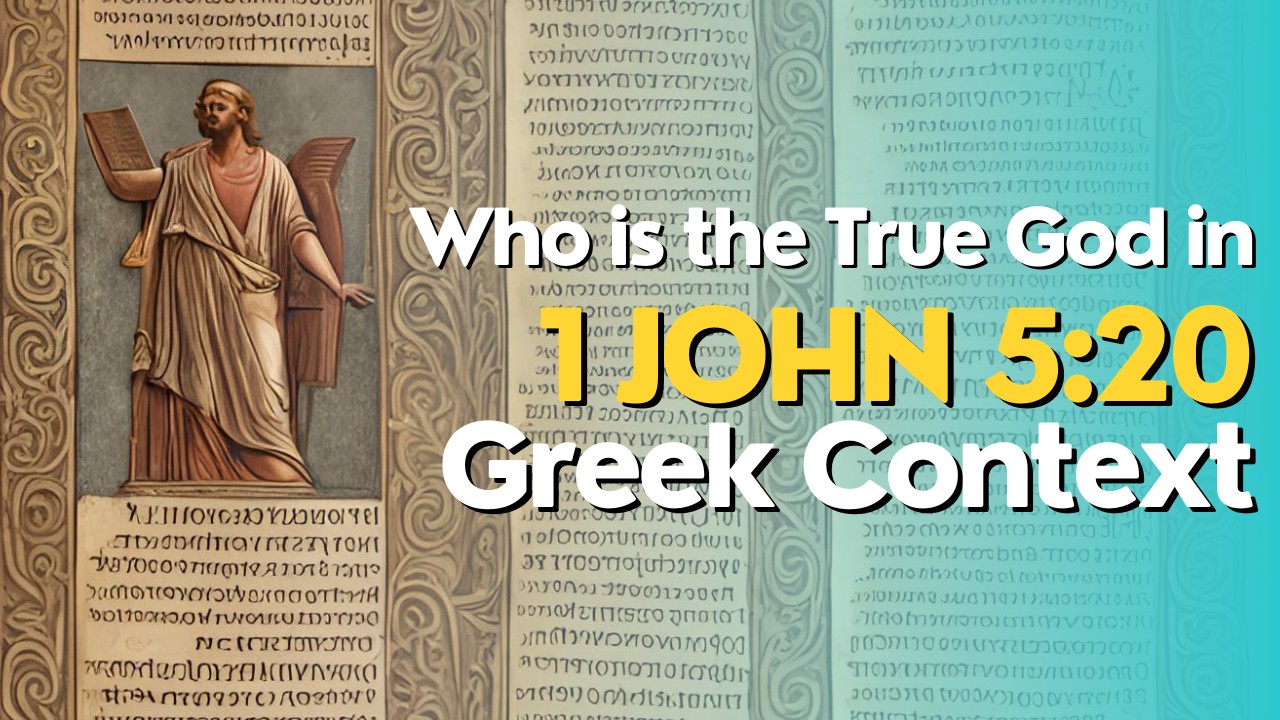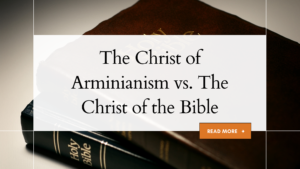Views: 10
👨🏫 Different Views on the Interpretation of 1 John 5:20
1 John 5:20 is a verse in the New Testament that has been the subject of theological debate, particularly regarding whether “the true God” mentioned in the verse refers to Jesus Christ or to God the Father. Here is the verse in question:
“And we know that the Son of God has come and has given us understanding, so that we may know him who is true; and we are in him who is true, in his Son Jesus Christ. He is the true God and eternal life.” (1 John 5:20, ESV)
There are two main interpretations:
1. **Referring to God the Father:**
– Some scholars and theologians interpret “the true God” as referring to God the Father. They argue that the verse distinguishes between “him who is true” (the Father) and “his Son Jesus Christ.” In this interpretation, the phrase “he is the true God and eternal life” points back to God the Father. This view is consistent with the broader biblical theme that God the Father is often referred to as “the true God” (e.g., John 17:3).
2. **Referring to Jesus Christ:**
– Other scholars and theologians believe that “the true God” in this verse refers to Jesus Christ. They argue that the immediate antecedent is “Jesus Christ,” and thus the phrase “he is the true God and eternal life” directly refers to Jesus. This interpretation is supported by the structure of the sentence and the immediate context, which emphasizes Jesus’ role in providing eternal life.
**Arguments for each interpretation:**
– **For God the Father:**
– The phrase “him who is true” is understood to refer to God the Father, consistent with other New Testament references (e.g., John 17:3).
– The distinction between “him who is true” and “his Son Jesus Christ” suggests two distinct persons, making it more natural to read “the true God” as the Father.
– The theological tradition that generally attributes the title “true God” to the Father more frequently than to Jesus.
– **For Jesus Christ:**
– The immediate grammatical antecedent of “he is the true God” is “Jesus Christ.”
– The phrase “eternal life” is often associated with Jesus in John’s writings (e.g., John 1:4; John 11:25; 1 John 1:2).
– The early Christian confession of Jesus’ divine nature aligns with the attribution of the title “true God” to him.
Ultimately, the interpretation can depend on one’s theological perspective and the broader context of John’s writings. Some Christian traditions emphasize the unity of the Trinity and see no conflict in referring to both the Father and the Son as “true God,” while others maintain a distinction in terms of how these titles are applied.
——————————————————————-
👨🏫 Examining the Greek grammar and context of 1 John 5:20.
In examining the Greek grammar and context of 1 John 5:20, we can gain some insights into whether “the true God” refers to Jesus Christ or to God the Father.
Here is the verse in Greek:
καὶ οἴδαμεν ὅτι ὁ Υἱὸς τοῦ Θεοῦ ἥκει καὶ δέδωκεν ἡμῖν διάνοιαν ἵνα γινώσκωμεν τὸν ἀληθινόν, καὶ ἐσμέν ἐν τῷ ἀληθινῷ, ἐν τῷ Υἱῷ αὐτοῦ Ἰησοῦ Χριστῷ. Οὗτός ἐστιν ὁ ἀληθινὸς Θεὸς καὶ ζωὴ αἰώνιος.
Transliteration:
“kai oidamen hoti ho Huios tou Theou hêkei kai dedôken hêmin dianoian hina ginôskômen ton alêthinon, kai esmen en tôi alêthinôi, en tôi Huiôi autou Iêsou Christôi. houtos estin ho alêthinos Theos kai zôê aiônios.”
Breaking down the Greek text:
– “ton alêthinon” (the true one) appears twice: once in reference to “ginôskômen ton alêthinon” (we may know him who is true), and then “en tôi alêthinôi” (in him who is true).
– “houtos” (this one) is a pronoun that can refer to the nearest antecedent.
In this context, “houtos” (this one) could grammatically refer to “Iêsou Christôi” (Jesus Christ), the nearest antecedent. Therefore, from a purely grammatical perspective, the phrase “houtos estin ho alêthinos Theos kai zôê aiônios” (this one is the true God and eternal life) most naturally refers to Jesus Christ.
**Contextual Considerations:**
1. **Immediate Context:**
– The immediate context mentions Jesus Christ as the one who has come and given understanding. The structure of the sentence places Jesus as the subject closest to the pronoun “houtos.”
2. **Broader Johannine Context:**
– In the Johannine writings (the Gospel of John and the Johannine epistles), Jesus is often identified with terms like “eternal life” (John 1:4, 11:25, 14:6) and closely associated with the nature and revelation of God.
3. **Early Christian Interpretation:**
– Some early church fathers, such as Irenaeus and Augustine, interpreted this verse as referring to Jesus Christ as the “true God.” This suggests an early understanding of the verse in a way that highlights the divinity of Christ.
**Conclusion:**
While there is a theological case for either interpretation, the Greek grammar and immediate context of 1 John 5:20 most naturally support the view that “the true God” refers to Jesus Christ. This aligns with the pronoun “houtos” pointing to the nearest antecedent, “Jesus Christ.” However, interpretations can vary based on theological perspectives and broader biblical context.
——————————————————————-
👨🏫 The Credibility of the Greek Scholars: Irenaeus and Augustine.
Irenaeus and Augustine were influential early Christian theologians, but their backgrounds and primary languages differed, impacting their expertise in Greek.
**Irenaeus of Lyons (c. 130–202 AD):**
– Irenaeus was originally from Asia Minor (modern-day Turkey) and likely spoke Greek as his first language. He later moved to Lyons (in modern-day France), where he became the bishop.
– He wrote primarily in Greek, and his works, such as “Against Heresies” (Adversus Haereses), were originally composed in Greek.
– Given his background and the language of his writings, Irenaeus would have had a solid understanding of Greek.
**Augustine of Hippo (354–430 AD):**
– Augustine was born in North Africa (modern-day Algeria) and primarily wrote in Latin.
– He had some knowledge of Greek but was not as proficient in it as he was in Latin. Augustine himself admitted to struggling with Greek in his youth, and most of his theological works were composed in Latin.
– Despite his limited proficiency in Greek, Augustine’s theological insights and interpretations were highly influential.
**Conclusion:**
– **Irenaeus** was well-versed in Greek, as it was his primary language and the language of his theological writings.
– **Augustine** had a limited proficiency in Greek and primarily worked in Latin. His theological interpretations were influential, but his insights into Greek texts were not as profound as those of native Greek speakers like Irenaeus.
Thus, while Irenaeus can be considered a Greek scholar, Augustine, although influential, would not be classified as a Greek scholar. However, both contributed significantly to early Christian theology and its interpretation of scriptural texts.
——————————————————————-
👨🏫 Here is a relevant passage from Irenaeus’s “Against Heresies”:
English:
“For no one can know the Father, unless through the Word of God, that is, unless by the Son revealing Him; nor can he have knowledge of the Son, unless through the good pleasure of the Father.” (Against Heresies, Book IV, Chapter 6, Section 3)
Latin:
“Nemo enim potest cognoscere Patrem, nisi per Verbum Dei, hoc est per Filium eum manifestantem; neque potest cognoscere Filium, nisi per beneplacitum Patris.” (Adversus Haereses, Liber IV, Caput VI, Section 3)
((Author’s note:
Due to the lack of the original Greek manuscripts for some of Irenaeus’s works, the exact Greek text for this particular quote isn’t readily available. The primary source material we have is the Latin translation. If the original Greek does exist in some critical editions, it would typically be found in specialized academic collections or critical editions of Irenaeus’s works that include Greek fragments.))





Amen!